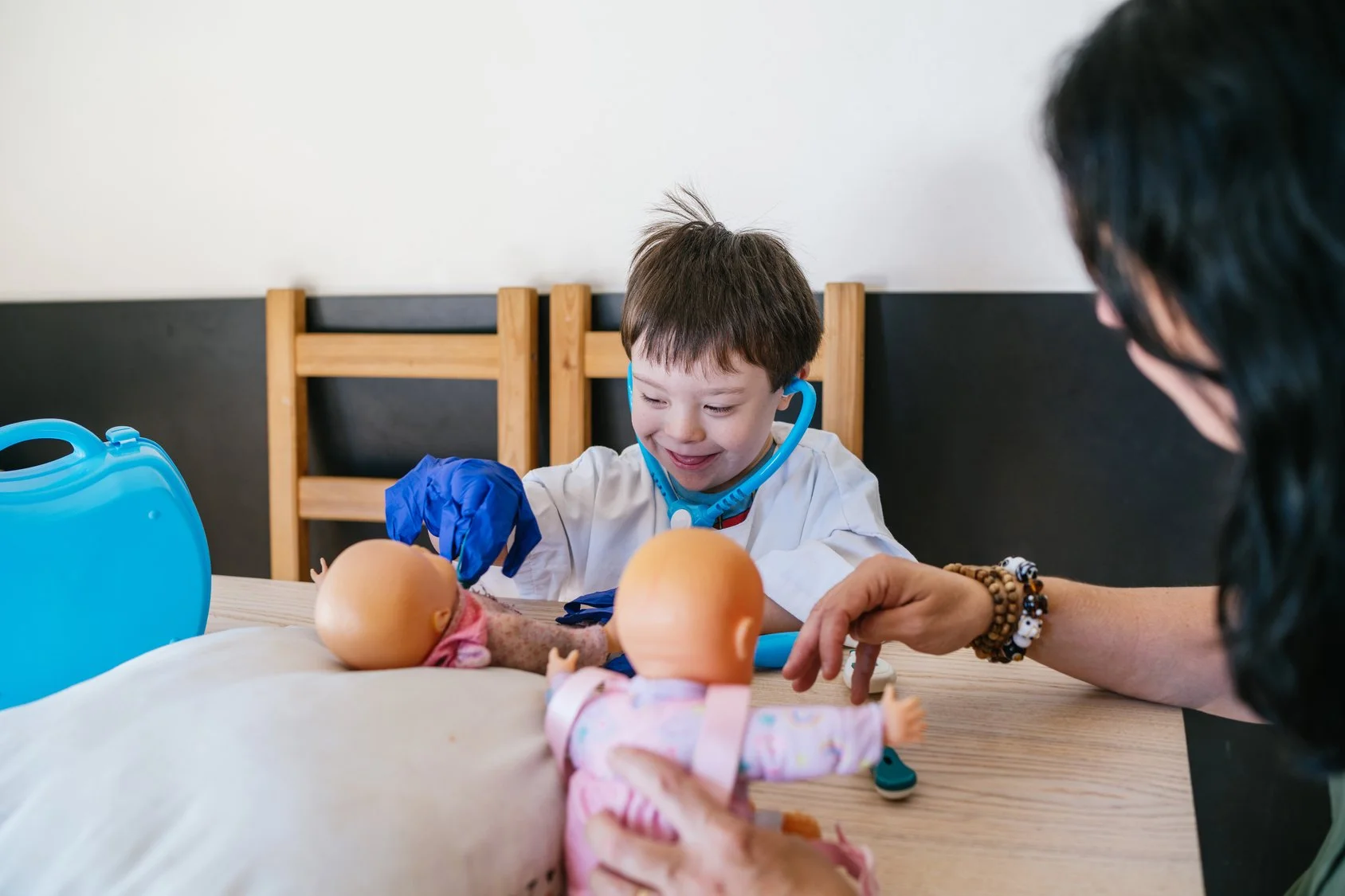Why is Play Therapy Beneficial?
Have you ever wondered what is Play Therapy?
We discuss with our highly-regarded Play Therapist, Stephanie Kozno, uncovering why this developmentally-appropriate and effective form of therapy can truly benefit your child.
Can you explain your understanding of Play Therapy and how it works?
SK - “Play Therapy is a developmentally appropriate form of counselling for children. It recognises that play is a child’s natural way of communicating and making sense of the world. Through play, children can express thoughts and feelings they might not yet have the words for. As a play therapist, I support children to express themselves in their own time and way, while helping them build emotional understanding, resilience, and new ways to cope.”
Why is play therapy good for children?
“Play therapy works well for children because it meets them at their level. Rather than relying on talking, which can be hard for young children, it uses play, the way they naturally explore, communicate, and process the world.”
“In play therapy, children can act out experiences, test new ideas, and express big feelings safely. It also helps them build important skills like problem-solving, emotional awareness, and self-control, all while feeling supported and understood.”
What types of Play Therapy Techniques do you typically use?
SK - “I use a mix of child-centred and more structured approaches, depending on what the child needs at the time. Some children benefit most from child-led sessions where they’re free to explore and express themselves at their own pace. In those sessions, I might use miniatures or animal figures to help them act out stories that reflect their inner world. Other children respond well to a bit more structure, like using a feelings board or a therapeutic game to build emotional awareness and problem-solving skills. I’m always observing and adapting to make sure the approach fits the child and supports their growth in the most meaningful way.”
How do you tailor your approach to meet the unique needs of each child?
SK - “Every child is different, and I take the time to get to know them, their interests and strengths. I adapt my approach based on how each child communicates and what helps them feel safe. I also work closely with parents and caregivers to make sure I’m supporting the child within the context of their home, school, and everyday life.”
Is Child-Based Play Therapy Evidence Based? See the results for yourself.
How do you encourage children to engage in the therapeutic process?
SK - “Before sessions begin, I provide parents with a simple, child-friendly booklet that’s designed to introduce the child to play therapy. It helps them understand what to expect, what the space looks like, and who I am. This eases any nerves and begins to build a sense of safety and familiarity before they even walk through the door. Once we begin, I focus on creating a calm and welcoming environment where the child feels in control and supported. I follow their lead in play, gently building trust through consistency, empathy, and curiosity. I pay close attention to what feels safe and engaging for them, and I move at their pace. These early steps are key in helping the child feel comfortable enough to open up and begin their therapeutic journey.
What do you enjoy about helping children through Play Therapy?
SK - “I love seeing a child’s confidence grow! Whether it's through trying something new in the playroom, standing up for themselves in a game, or using a calming strategy we’ve practiced together. It’s incredibly special to witness those moments when a child starts using the tools we’ve explored, both in session and out in the real world. Watching that progress unfold through play reminds me how powerful and capable children truly are.”
Why is Play Therapy Effective? Can you provide examples of successful outcomes you’ve achieved with children?
SK - “I’ve worked with children who have shown big improvements in their behaviour over time. For example, one child who used to become very upset during transitions gradually became more settled and able to move between activities with less resistance. Another child who often acted out when feeling overwhelmed learned new ways to express their needs more calmly. I often see children become more confident, cooperative, and better able to manage their emotions through our play-based work together.”
Do you have any specific resources or activities you recommend for parents to support their child’s therapy at home?
SK - “Yes, I often suggest simple ways parents can support their child at home. One of the most helpful things is setting aside regular one-on-one playtime, just 10 to 15 minutes of undistracted time where they follow their child’s lead. I also encourage parents to notice and name emotions as they come up during the day, this helps children build emotional awareness and feel more understood.”
If you’re interested in Play Therapy for your child. Please fill out the form at the link here: https://www.resilientkidz.au/play-therapy-application


